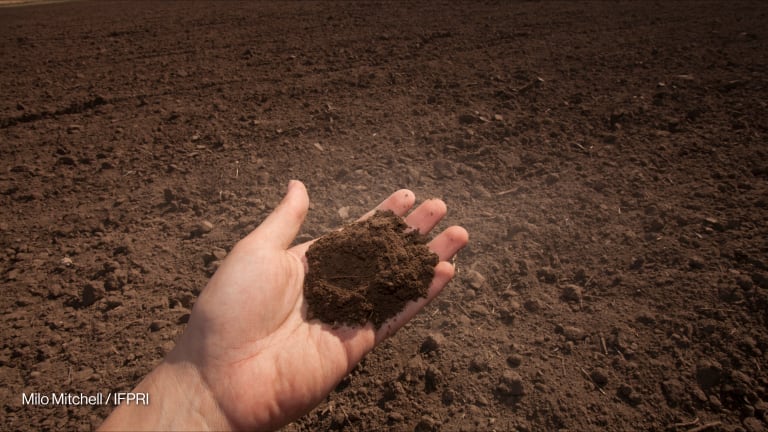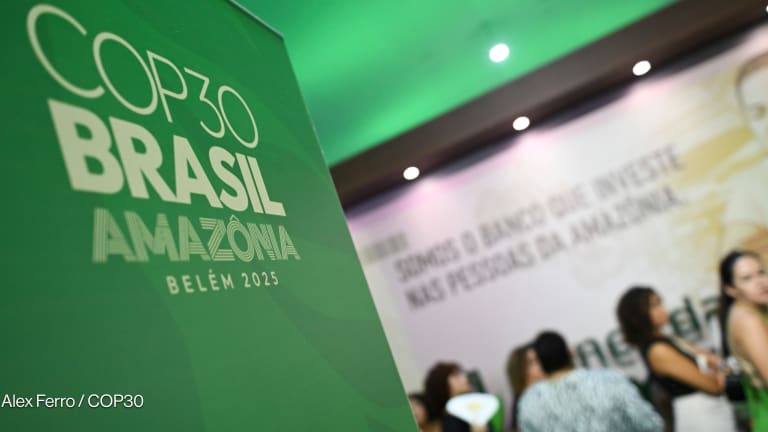
We’re all aware of the severity of the global climate crisis. From extreme weather to deforestation, 3.6 billion people live in areas highly vulnerable to climate change. Unaddressed, an additional 130 million people may be pushed into poverty in the next 10 years.
Heading into the 28th United Nations Climate Change Conference, or COP 28, in Dubai, many leaders feel a renewed sense of urgency. Data on the global response to the climate crisis shows global temperatures may now rise by 2.4 degrees Celsius-2.6 degrees Celsius by the end of the century — well above the 1.5 degrees Celsius the world was trying not to surpass.
As a global community, we must do better. Everyone has a role to play — from the smallest businesses to the biggest corporations, from governments to nongovernment organizations, from older generations to youth.
From there, the next crucial step is to spark collective action by harnessing the power of each group’s effort. And we believe we can do that through networks.
In the financial world, networks are the financial institutions, customers, and merchants at the core of companies such as Mastercard. Our global network includes more than 100 million acceptance locations, and with 3.2 billion cards in circulation, we have the ability to reach scores of people who want to make more sustainable choices.
As the first in the payments industry to gain Science Based Targets initiative approval for its greenhouse gas goals, we’re now using our unique role in the economy to drive collective climate action. This work is central to our mission and it’s ongoing. Through innovative products and solutions, we’re galvanizing our network of customers, partners, suppliers, and consumers to take action.
Technology is the enabler of action
Technology can contribute to a more sustainable future, as new innovations can help reduce our global carbon footprint. Networks can help supercharge the power of those new technologies by bringing them to more people around the world.
The Mastercard carbon calculator is one example of how networks can help spur and scale new technologies. Developed in partnership with Swedish fintech Doconomy, the calculator shows people the estimated carbon footprint of purchases made with their card to help them better understand the environmental impact of their spending. It can also be combined with other technologies and products that enable consumers to take additional action, such as contributing to reforestation efforts. Using application programming interfaces or APIs — a set of rules that bring multiple services together to create seamless digital interactions — that are available through the Mastercard Developers platform, banks can easily integrate the carbon calculator into their mobile apps. This year, the carbon calculator launched with banks in Poland, Bulgaria, Portugal, and Spain and today it’s also live in Italy, the United Kingdom, Taiwan, and Hungary.
We can also turn to technology to help find new materials that can reduce society’s reliance on plastic. In 2018, we launched our Sustainable Materials Directory to encourage issuers to offer cards made from more sustainable materials such as bio-sourced or recycled ones. Since then, more than 519 issuers across 97 countries have signed up to transition 388 million cards across our network to recycled and bio-based materials.
Now we’re using our network to take that commitment another step forward by removing all first-use polyvinyl chloride, or PVC, cards on our network. From 2028, all newly produced cards will be assessed for their composition and sustainability claims and validated by an independent third-party auditor.
Earlier this year, Mastercard also introduced a first-of-its-kind global program to collect, securely shred, and recycle plastic payment cards. This is designed to help stop the billions of cards in circulation from ending up in landfills — for the benefit of people and the planet.

Partnerships take networks to the next level
Partnerships are like force multipliers for networks. We’ve seen that power in action through our Priceless Planet Coalition, which is working to restore 100 million trees in partnership with climate science and restoration experts Conservation International and World Resources Institute.
We have more than 140 partners globally in the coalition committed to running campaigns that align with their business goals and engage consumers. This includes encouraging consumers to donate to tree restoration or convert loyalty points earned with merchants to fund opportunities to support global tree restoration efforts.
This October, IHG Hotels & Resorts, one of the world’s leading hotel companies, donated to Conservation International to plant a tree for any transaction of $50 or more on a Mastercard card at select IHG-branded properties in the United States. In France, Carrefour encouraged customers at more than 400 participating stores to round up the cost of their purchase at checkout as a donation to plant a tree. With 300 donation campaign partners activating more than 500 campaigns to date, it’s clear that partnerships can create a ripple effect and serve as powerful forces for positive change.
Beyond the network
Combining technology and partnerships together with existing networks pays dividends. We’ve seen that in Malawi, where Wells for Zoë is working to bring clean drinking water to villages and restore hills and fields that have been decimated by deforestation. The organization manufactures pumps that can be used in hand-dug wells to supply clean water to communities.
About five years ago, the organization also started restoring trees in the areas it serves as an extension of its clean water work. Both initiatives help improve lives for the mostly women who used to have to walk miles to get water and firewood. Restoring these landscapes can help them get easier access to their own sustainably grown firewood. Given extra time, those women are now freer to work and make money, contributing to the economic health of the village.
It was this reforestation work that caught the eye of Mastercard’s Priceless Planet Coalition, which is now restoring 3 million trees with Wells for Zoë. Each of those trees will be tracked for the next five years through the coalition’s rigorous monitoring framework, ensuring they grow tall and strong.
Tapping into networks to power climate action isn’t something reserved for global companies. Companies at every level across industries can do the same. By turning to your networks, you can drive impactful changes that will have reverberating effects across our planet. As we head into COP 28, I hope you’ll join us in these efforts.
To learn more about how Mastercard is creating opportunities to engage businesses of all sizes to combat climate change, click here.








